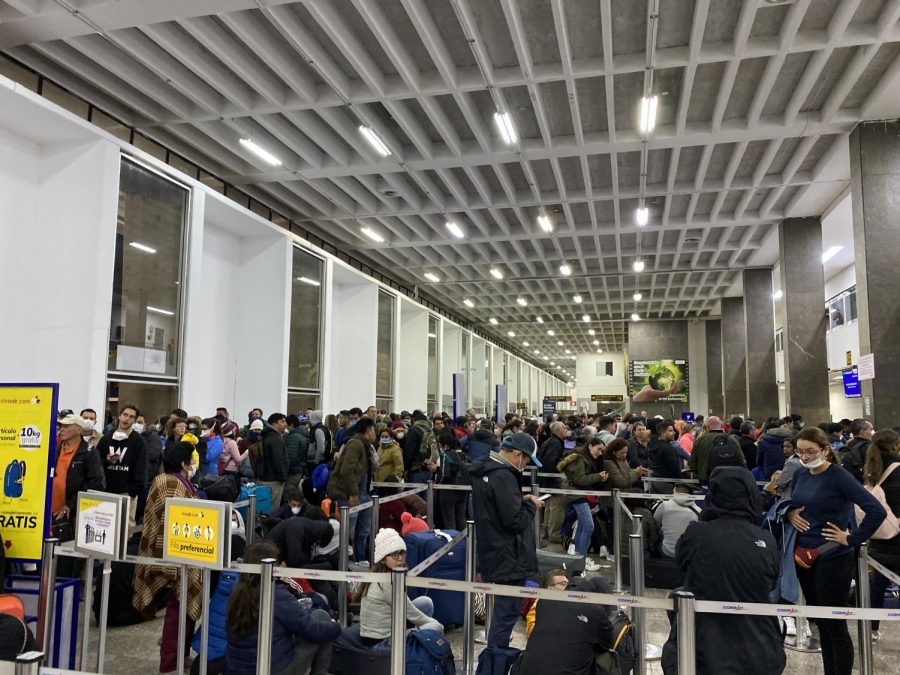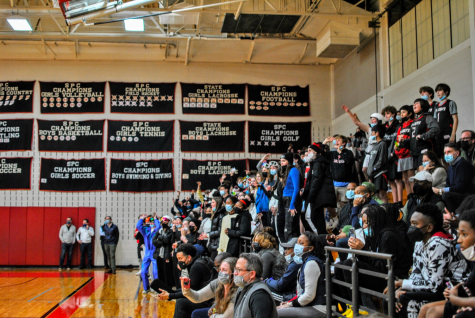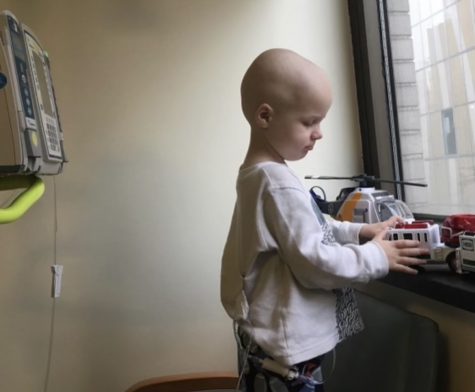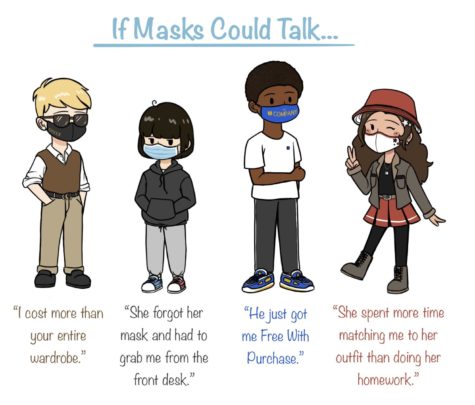Travel restrictions strand families, force students to cancel trips
While the majority of families stayed home over spring break due to mounting concerns over COVID-19, thousands of Americans were stranded in foreign countries with no way to return.
Freshman Natasha Janssens and her family, including seventh-grader Lucy Janssens, left for Peru on March 13 expecting a once-in-a-lifetime experience of hiking, eating and exploring Machu Picchu. Instead, she was stuck in the country with her family for two weeks along with 2,800 other Americans until government officials were able to negotiate their release from quarantine.
From the moment the Janssenses landed in Lima, health care workers took precautions to prevent the spread of COVID-19. Airline employees dressed in protective gear took the temperature of everyone on their flight and asked if any passengers were experiencing symptoms. Since none of the Janssenses felt ill, they did not have to quarantine.
Two days after her arrival, Natasha hiked to the top of Machu Picchu in Cusco. That night, her family faced difficult news while returning from Machu Picchu to Lima. At 8 p.m., Peruvian president Martín Vizcarra announced that at midnight, the country would begin a 15-day quarantine period. This quarantine included the closure of all airports starting at 11:59 p.m. on March 16 and the halt of all outdoor activities except grocery shopping and obtaining medicine. The Janssenses did not find out about this directive until several hours later when they called to confirm their reservations in Lima.
The Janssenses made it to the Cusco airport at 3:30 a.m. on March 16. After waiting for over three hours, they were informed that there were no tickets available to leave Cusco for the rest of the day. The family then contacted multiple private jet charter companies to get back to the US, but landing in Cusco requires a specially trained flight crew due to the city’s high elevation. Any Americans who made it out of Cusco on March 16 had booked flights out of the country for that particular day in advance.
Under the Peruvian quarantine order, the only way for Americans to exit the country was through negotiations between the American and Peruvian governments. The Janssenses went to the local US embassy, where officials refused them entry and referred them to a handout pinned to the door containing instructions to register for a free service that allows US citizens to enroll with the local embassy. The Janssenses had already done this.
When they contacted their Houston Rep. Lizzie Fletcher (’93) and Sen. Ted Cruz via email, they received the same information they had seen previously on the sign outside of the consulate.
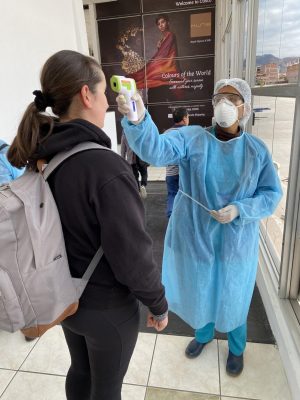
Freshman Natasha Janssens was screened for COVID-19 upon her arrival in Peru.
Through March 26, Natasha spent her days watching Netflix, reading and working out at the hotel gym. She was able to go to the grocery store with the rest of her family until the law changed to allow only one person per family to go to the grocery store and only with a mask. During this time, the US was able to transfer 1,000 other Americans back, and an estimated 2,800 Americans were still in Peru. Many of the Americans in Peru tried to stay in close communication with each other. The Janssenses were a part of WhatsApp groups and used Twitter hashtags to stay in touch, including #stuckinperu.
“Interestingly, other countries such as Israel and Mexico have been able to get their citizens out much more quickly,” Natasha said.
On her final day in Peru, her parents received an email from the US embassy saying they were on a flight scheduled for Friday, March 27. Before the flight, they spent 4 hours in the sun waiting to be screened for COVID-19. Several weeks after leaving Peru, the Janssenses found out that there were many more Americans in Peru than originally anticipated. As of April 22, about 8,100 Americans were flown out of Peru, with more arriving daily.
Many students ended up cancelling their trips willingly or had them cancelled for them.
Daniel Neuhaus, a senior, had been excited to go on the annual senior spring break trip to the Bahamas and was sad to see the opportunity cancelled.
“I was looking forward to spending time on the beach with friends,” Neuhaus said. “My friends were finally going to be on the same trip enjoying the same stuff, instead of just parts of a friend group.”
Junior Casey Propst was supposed to visit Germany and Switzerland with his choir, Kantorei, early this summer. He had even planned on coordinating with Moritz Wiesinger, the German foreign exchange student who attended SJS last year, so he could see the choir perform.
“I have mixed feelings about the trip being cancelled,” Propst said. “I am happy that our Fine Arts department and the travel company recognize the serious health risk of travelling during the pandemic, even if the trip would have occurred in June. However, I was really looking forward to singing with my friends in a foreign country.”

Natasha is a junior, and this is her third year on Review. She was stranded in Peru with her family at the beginning of the pandemic travel ban.




